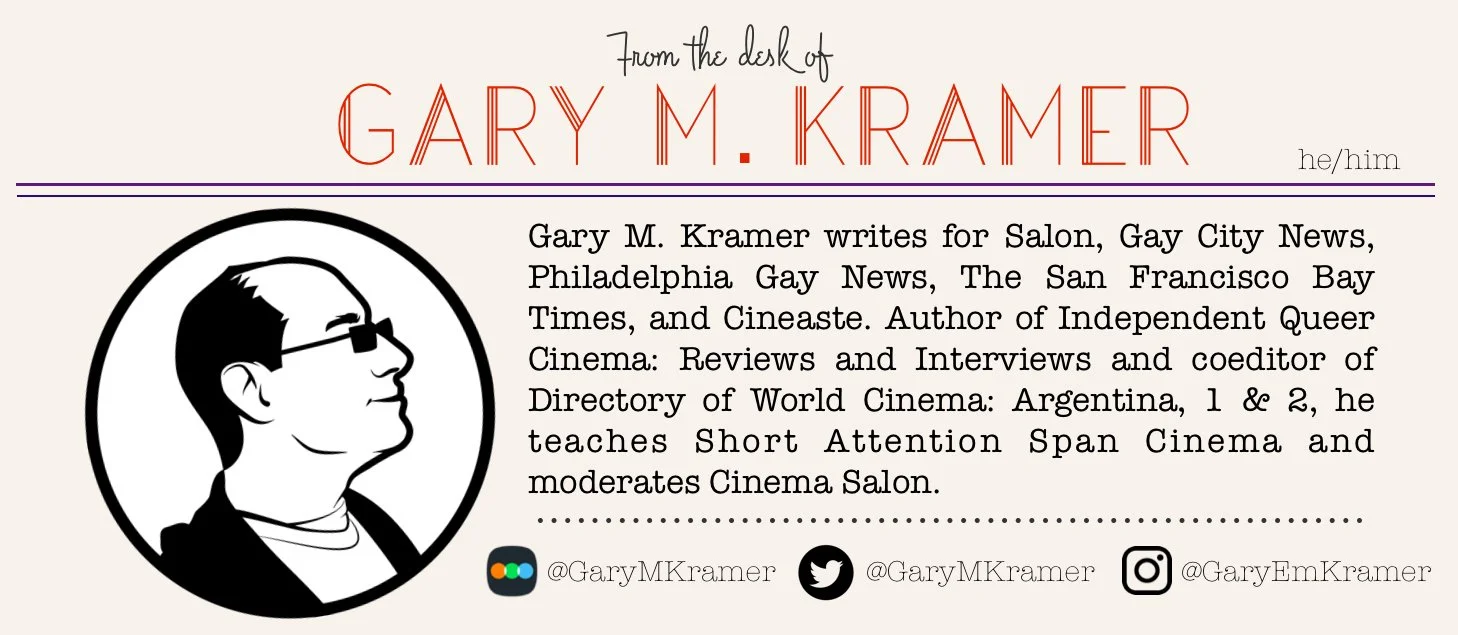21 POSITIONS examines the sex life of a couple over time
21 Positions
Directed by Néster Ruiz Medina
Written by Fernando Barona, María Lázaro, Néstor Ruiz Medina
Starring Fernando Barona, María Lázaro
Unrated
Runtime: 1 hour, 37 minutes
Available on Demand December 29
by Gary M. Kramer, Staff Writer
The Spanish drama 21 Positions immerses viewers into the intimate lives of Júlia (María Lázaro) and Mateo (Fernando Barona), a couple that make videos for their OnlyFans page. They are first seen filming such a video. Significantly, it may the only time the couple is seen having sex together in this film, which is a collection of 21 episodes—“positions” as it were—from their lives.
The intimacy between Júlia and Mateo is evident on screen. It is not just in the way they care for one another, but the comfortability they express when they are together. They fight playfully, tease, and groom one another. They are supportive of each other when their friends judge them for making sex videos. They deal with Júlia’s aging father and help him with the harvesting on his farm. They also argue. Júlia admonishes Mateo about not cleaning up, while Mateo questions Júlia’s unrealistic plan to finish her degree. Some of these scenes are actually quite tedious, as if to show this couple that earns money having sex can be boring.
Director Néster Ruiz Medina, who cowrote the script with his two leads, creates an almost documentary-like approach here, observing this couple in their environment with 21 single-take sequences. (It is also entirely shot on film, which provides a nice grainy texture.) The approach does not feel gimmicky, and when Júlia convinces Mateo to go skinny-dipping with her at the beach, he reluctantly agrees, only to freeze and bundle up in clothes while she stands naked in the sun against a wall as they argue. The scene holds viewer’s interest not just because Júlia is naked, but because she is living freely whereas he wants to be bound by conditions.
21 Positions chronicles the changes that take place in their relationship over time. One shift comes when Júlia decides to shave her head, without telling Mateo. He expresses his concern that her red hair will be missed by their fans who admire “Ginger Judy,” on their site. Júlia, however, obviously wants to stop having sex online, but Mateo does not, and an episode where they bring in a woman to perform on camera (and in a red wig) with Mateo also leads to a fight.
The film lets viewers fill in the gaps between the episodes—how much time has passed between the vignettes is unclear; a hand marking each segment on a chalkboard is all that is seen, along with a descriptive title. But it is easy to get caught up in the drama and watch as the characters, alone or together, process their feelings. There are also a handful of revealing moments, such as Júlia masturbating with a dildo and Mateo’s reaction when he walks in on her. In contrast, a sequence shot at a nightclub where the couple goes out with some friends, take drugs, and dance, does not provide much insight into their relationship. 21 Positions could have used some editing, but as the narrative builds, and the characters come to say what they truly feel, there is some real emotion on screen.
María Lázaro gets the better part as Júlia because she has the bigger arc, shifting from someone who comes across as sex positive and comfortable with her body, to being more withdrawn and internal. She loses her passion and that makes her more interesting. Fernando Barona’s Mateo is more one-note, focused on the money and sex and less concerned about what anyone (even Júlia) thinks. When Júlia prefers not to have sex because she is having her period, Mateo tastes her blood to signal he does not mind. His character often comes across as bratty, but a scene of him playing a song on a guitar is quite nice.
The film could have balanced out their characters because she is often more sympathetic. Moreover, her frequent nudity emphasizes Júlia’s vulnerability, whereas he only is seen naked fleetingly. Nevertheless, 21 Positions remains compelling throughout. The couple are, in fact, more interesting not having sex. Medina’s film is very much about love—how it is expressed and how it changes over time. This film is definitely, not a “date movie,” but it does provide an interesting examination of a couple.


